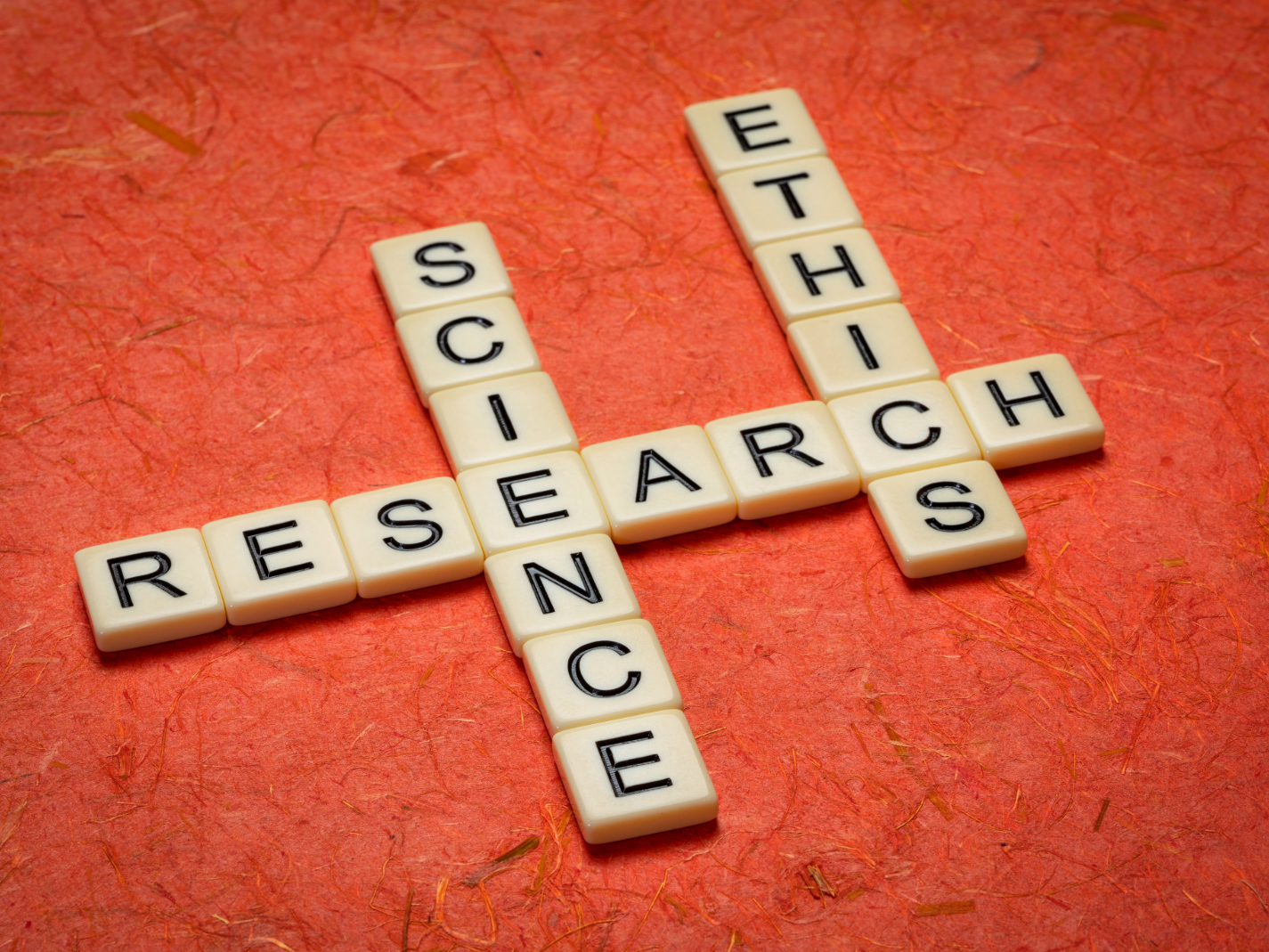
Described as a man who “always projected ‘moral and ethical rectitude,’” esteemed mid-1800s glacial geologist Thomas Chrowder Chamberlin once made a profound statement at the 1888 University of Michigan Annual Commencement: “Falsity in intellectual action is intellectual immorality.” This statement appears to ring ever truer when one considers recent trends in 21st-century science.
Before diving straight into negativity, though, I would first like to showcase some recent wins in the scientific field briefly.
Last year, science offered the world numerous different breakthroughs and achievements in various scientific subfields. Regarding biomedical science, Science Magazine reported the 2024 Breakthrough of the Year to include a preventative injection for human immunodeficiency virus (HIV), which provides hope for individuals suffering from this debilitating disease. A runner-up biomedical science breakthrough that was noted included a successful clinical trial for immunotherapy treatment targeting the autoimmune condition systemic lupus erythematosus—i.e., lupus. In agricultural science, success was noted with a type of pesticide using RNA technology, which would more precisely target pests and, therefore, be safer for consumers as compared to traditional chemical pesticides.
Amidst these successes and breakthroughs, however, science in recent years has been equally marked by failures and flaws. Research misconduct scandals and peer review fraud have significantly damaged the field of science. These notable issues, as well as the continuing debate on the reproducibility crisis, have sparked important conversations and have slowly begun leading to change.
Research Misconduct
The reports of research misconduct are, unfortunately, nothing new and have been rising at alarming rates.
The University of California San Diego noted that 2023 was marked with the highest instances of research misconduct, and in 2024, science was hit with three more significant investigations. National Institute of Health (NIH) officer and Parkinson’s neuroscientist Eliezer Masliah was removed from his director position at the National Institute of Aging (NIA) after suspicions of figure manipulation in a variety of different publications.
In addition to this, University of Rochester physicist Ranga Dias was officially terminated from his position after findings of both plagiarism and data manipulation in his breakthrough room-temperature superconductor discoveries. Also of note, Berisłav Zloković from the University of Southern California School of Medicine took a leave of absence from his work after being accused of data manipulation.
In response to this alarming rise in research misconduct cases, the U.S. Department of Health and Human Services (HHS) Office of Research Integrity (ORI) issued a final rule in September of 2024 as an update to 2005 regulations.
As noted by the HHS website, this ruling applies to universities and other institutions that conduct research and to which the Public Health Service (PHS) gives support. One crucial aspect of this revision is that it requires institutions to “provid[e] a clearer description of research misconduct investigation requirements, distinguish requirements for transcribed interviews, pursu[e] leads, and address situations involving multiple respondents.” These measures are intended to clarify the requirements of research misconduct investigations involving research that has been funded by the PHS.
This ruling went into effect on January 1, 2025, and will make its final applications to PHS-funded institutions in January 2026.
Peer Review Fraud
In the discussion of academic fraud came another surprising report by Nature on December 3, 2024.
Seven months earlier, ecologist Michael Bertram discovered that he was the victim of identity theft. His identity was not used to open a new account or take out a loan. Rather, another researcher used his name to generate fake reviews for numerous submissions to Science of the Total Environment (STOTEN). The goal of this fraud was likely to secure positive reviews for their own future submissions, increasing their chances of publication. While the exact perpetrator remains uncertain, one individual linked to all 22 retracted articles in this case is Guilherme Malafaia of the Goiano Federal Institute in Brazil.
Also of note is a newly identified type of misconduct tied to fraudulent practices in the peer review process: “review mills.”
In an article published in Scientometrics by Ángeles Oviedo-García in 2024, the concept of peer “review mills” was introduced to include a sequence of shady peer review practices involving “generic, vague, and repeated affirmations” across multiple articles submitted to the same journal. In other words, as noted by the Embassy of Good Science, the peer review comments supplied to article submissions are self-plagiarized and serve only the purpose of mass publication with a blatant disregard for accuracy, quality, or even ethics.
Since early 2024, discussion on “review mills” and fraudulent peer review practices has become significantly more frequent online, with the publication of Ángeles Oviedo-García’s article in August as well as other articles surfacing on Chemistry World, Predatory Journals, and even Science Magazine.
[RELATED: America Needs New Science Standards]
Reproducibility Crisis
Discussion on the reproducibility crisis—also known as the replication crisis—in the science world is certainly nothing new. In 2005, John P.A. Ioannidis published an article in PLOS Medicine that made an incredibly bold statement: “It can be proven that most claimed research findings are false.” Following this publication, various articles discussing the reproducibility crisis progressively began surfacing on the Internet.
In response to growing reproducibility concerns, a 2013 initiative was launched by the Center of Open Science (COS) to attempt replication of the findings of numerous high-profile cancer studies across the nation. As reported by Science Magazine in 2021, the COS project demonstrated that less than half of the conducted replications showed results paralleling that of the original studies.
It did not appear much was being done to address this concerning scientific trend until a December 2024 Science Magazine article reported on a new NIH initiative targeting this ongoing issue. Beginning its pilot in the early months of 2024, the NIH initiative offered NIH principal investigators (PIs) fully funded contract lab replications of all studies with significant population health stakes as a means to guarantee the validity of the studies. Unfortunately, only a small number of individuals chose to participate. As noted in the article, the incentive was quite low because the data gathered in the pilot study would not be made public. This would, therefore, provide no tangible advantage to the scientists who participated.
Despite this limitation, though, this initiative does provide the first notable step towards initiating a program targeting the experimental replication crisis.
Concluding Thoughts
Several months ago, when I reported on the Ranga Dias misconduct case for Minding the Campus, I included in my article a Pew Research Center report on the public’s rapidly declining trust in the scientific community. Based on the points outlined above, it is clear that the breakdown of scientific practice and ethics occurs at multiple levels, from individual scientists to journals to broader institutions. With more and more individuals taking note of these issues, though, it is somewhat encouraging to see that 2024 brought with it initiatives such as the PHS ORI revision and the NIH replication project.
That being said, this is not nearly enough.
We are just two months into 2025, a year that brings with it new opportunities for a reversal in the scientific community—from individual scientists all the way to the institutions. More initiatives need to be implemented to crack down on carelessness and fraud in research facilities, universities, and even journals. Scientists who practice misconduct need to receive punishments—ones that are drastic enough to serve as a deterrent for others who may consider participating in such behavior. And, ultimately, individual scientists need to take responsibility for and pride in the work they produce. They need to demonstrate ethics, practice care, and remind the world of what it truly means to practice honest science.
Explore more from Hannah Hutchins on Muck Rack, and visit our Minding the Science column for in-depth analysis on topics ranging from wokeism in STEM, scientific ethics, and research funding to climate science, scientific organizations, and much more.
Image: MarekPhotoDesign.com — Adobe Stock — Asset ID#: 387186655

My wife was diagnosed of Parkinson’s Disease at age 61. She had severe calf pain, muscle pain, tremors, slurred speech, frequent falls, loss of balance, difficulty in getting up from sitting position. She was put on Senemet for 6 months and then Siferol was introduced and replaced the Senemet. During this time span she was also diagnosed with dementia. She started having hallucinations and lost touch with reality. Last year, our family doctor started her on Uine Health Centre PD-5 formula, 2 months into treatment she improved dramatically. At the end of the full treatment course, the disease is totally under control. No case of dementia, hallucination, weakness, muscle pain or tremors. My wife is strong again and has gone on with her daily activities as I share this experience. I’m surprised a lot of PWP haven’t heard of PD-5 formula. we got the treatment from their website uinehealth centre . c om it’s not a cure all but it does work.
Great post, Hannah! Unfortunately, this kind of fraud, dishonesty, and general misconduct has many manifestations throughout academia and our society more generally. Keep fighting the good fight!
“Amidst these successes and breakthroughs, however, science in recent years has been equally marked by failures and flaws”
This is just absurd. I will just recount my own experience. I have had one paper plagiarized. Which I learned about when I reviewed the paper! The editor dealt with the situation to my own satisfaction. This was certainly a transgression. But, as far as I know, none of my other many papers have been plagiarized.
As far as fraud in other papers, I’ve never encountered this. Everything I see and experience tells me that fraud is rare. Probably less rare in the biomedical sciences. No, it is not an equality.
As far as the “irreproducibility crisis” — I believe this first came to fame through the writings of John Ionnadis. I have to say that he published work on covid that left me, to put it mildly, unimpressed with its quality. (I am not claiming misconduct.)
My own view is that in the “soft sciences,” not just social sciences but a vast amount of biomedical science, getting the facts is very difficult because of the complexity of the systems. I know that a lot of the results are inconclusive. The remedy is to dig further on anything that is possibly really important. If a study finds out that pickle juice cures gout, be skeptical. But don’t get bent out of shape. It has taken decades to (seemingly) find out the real situation of hypertension risk.